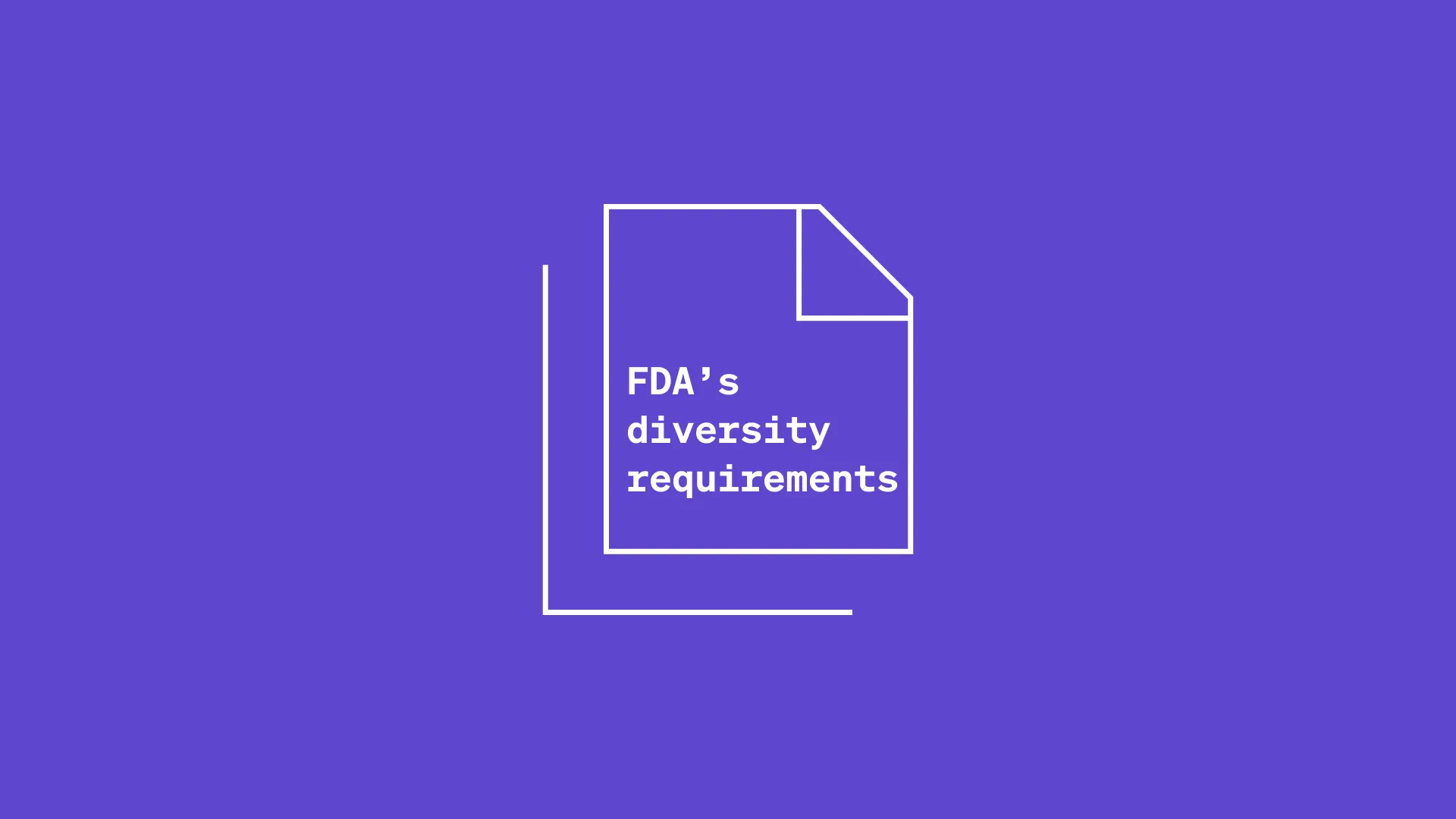Regulatory Guidance


Back to basics: How the FDA's diversity requirements impact clinical trial treatments
The FDA is taking steps to ensure that clinical trials are more representative of the diverse populations they aim to serve. This comes after the industry and the FDA's long-term recognition that clinical trials have often excluded underrepresented groups, leading to health disparities across the United States and the world.


Evidence & Insights: A Data-Driven Exploration of Decentralized Elements and Digital Trial Technologies
In Medable’s first edition of Evidence and Insights, you’ll get an in-depth look at our research investments and collaborations exploring the effects of DCTs and clinical research technology. Through strategic partnerships and continued investment, we’ve spearheaded efforts that redefine industry standards and set a new precedent for the evidentiary basis of technology’s impact on drug development.


Key Insights from the FDA's DHT Guidance
On December 23, 2023, the FDA released guidance for the industry on how digital health technologies (DHTs) should be used in clinical trials.
DHTs, which the FDA defined in their “Framework for the Use of DHTs in Clinical Trials,” are “technologies such as wearable, implantable, ingestible, and environmental sensors and software applications on mobile phones, among others.”
DHTs can be used to collect data from clinical trial participants more efficiently and objectively than traditional methods. For example, DHTs can collect data on participants' activity levels, sleep patterns, and medication adherence. This data can be collected electronically, which can reduce the burden on participants and improve the accuracy of the data


Medable Petitions Comments on ICHE6(R3) Draft Guidance
When technology enters a regulated environment, early adopters often cite regulatory uncertainty as a hurdle. In fact, a 2021 Clinical Trials Transformation Initiative (CTTI) survey showed that regulatory uncertainty and lack of harmonization were the top reasons that hindered adoption of elements of decentralized clinical trials (DCTs).
During the COVID-19 pandemic, the increased adoption of decentralized methodologies was guided by temporary guidances put out by many regulators such as FDA’s March 2020 “Conduct of Clinical Trials of Medical Products During the COVID-19 Public Health Emergency” and the corresponding EMA guidance, which explicitly mentioned it would expire at the end of the designated Public Health Emergency.


Strategies for implementing eConsent across the European regulatory landscape
Camila Matheny, EVP of DCT Offerings at Medable and Caroline Beaufour, PharmD, Ph.D., Innovation Lead, Clinical Development Support at Servier, dive into the intricacies of implementing electronic informed consent (eConsent) in clinical trials within the complex regulatory landscape of European countries.
.webp)

Medable perspective: Three points on FDA eCOA guidance
At the beginning of April 2023, the FDA published a draft of the fourth in a series of Guidance Documents entitled “Patient-Focused Drug Development: Incorporating Clinical Outcome Assessments (COA) Into Endpoints For Regulatory Decision-Making”. Once finalized these four documents will be combined and will replace the 2009 Guidance, “Patient-Reported Outcome Measures: Use in Medical Product Development to Support Labeling Claims”. Part 3, which was released in draft in June 2022, provides advice around the development and validation of new COA (including the modification of existing COA).


Podcast: Michelle Longmire and David Fajgenbaum of EveryCure join the PharmaExec podcast
Medable CEO Michelle Longmire and Dr. David Fajgenbaum, co-founder of EveryCure, join Pharmaceutical Executive podcast to talk about their partnership adn navigating the regulatory landscape.


J.P. Morgan Week 2023: Trends, highlights, and themes from this year’s conference
See what key trends and takeaways were at the 2023 JPM conference and how they'll drive the landscape of pharma.


.webp)


